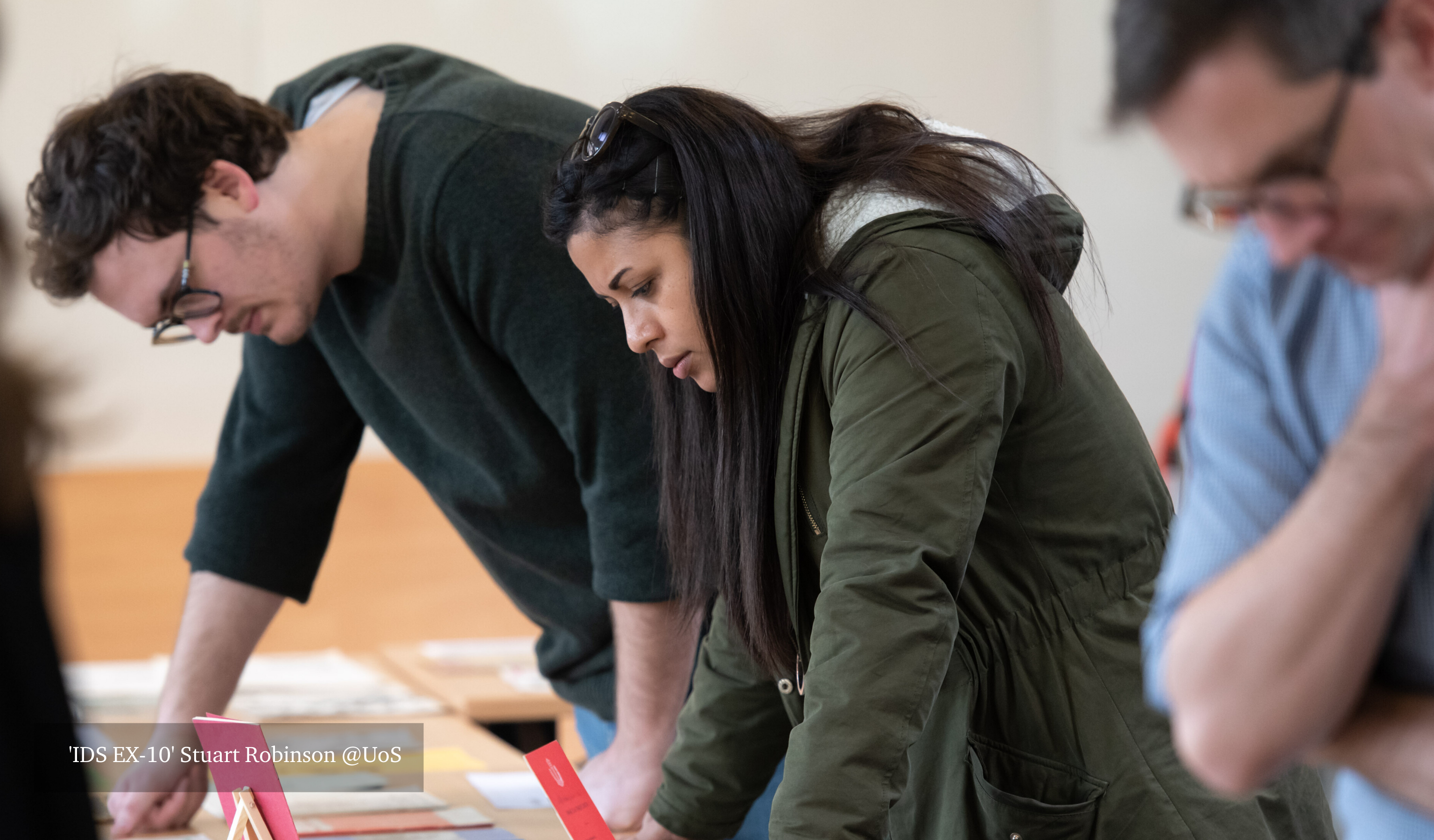“History is necessary to understand the present, to speak truth to power, and to fuel hope – no matter how controversial and many times put under scrutiny – that, despite historical turnarounds, some form of progress exists, or will in the future, and that it is possible to be in a better position than how we were and how we currently stand.”

These words were spoken by Erica Nelson in relation to the British Library for of Development Studies (BLDS) Legacy Collection, the subject of a new project aiming to promote and render publicly accessible a unique resource whose project team last week held an event to showcase some of its hitherto buried treasures.
The BLDS Legacy Collection tracks the unfolding story of international development over the last half-century and provides an unparalleled opportunity for a better understanding of the complex evolution of development interventions that have taken shape since the 1960s.
In recognition of its importance, IDS and the University of Sussex (UoS) (who jointly manage BLDS) were jointly awarded a substantial grant from the Wellcome Trust in 2019 to catalog, preserve, and improve access to the collection so a new generation of scholars can benefit from it. The project will take around three years to complete.
Cataloguing, preservation, and decolonisation
The project combines the expertise of the University of Sussex library staff with academic inputs from IDS researchers (including Hayley MacGregor, Jeremy Allouche and Erica Nelson), and with an Advisory Group featuring Richard Jolly (IDS), Vinita Damodaran (Sussex University) and Saul Becker (Sussex University).
When Danny Millum, Caroline Marchant-Wallis and Tracy Wilson, the University of Sussex project team, first approached the collection they found a basement full of rare and occasionally unique material, much of it originating from countries in the Global South.
The team have been looking at how they might form this collection, what themes it might be centered around, and what it might tell us about development studies, but also concentrating on the huge practical tasks of listing, cataloguing and classifying over a million items!
They have paid particular attention to how the collection can be decolonised and, described and catalogued in a sensitive and appropriate way. Of all the libraries around the world, the BLDS collection lends itself to this and gives us an opportunity to move toward librarianship with a new and thoughtful approach. The collection presents the opportunity to re-originise ideas from the Global South that may have been omitted from histories of the discipline, but which are still relevant to the international development issues of today.
Development readings across time and place
The history of development can be read as Development with a capital ‘D’, that is, the historical project of the post-World War Two, post-independence, post-colonial era where the practices and the ideas of the aid industry were at the forefront. We can also look to the history of development with a small ‘d’, i.e. a history of those complex processes of social, economic and political change.
The collection gives us the chance to learn from the past using both these readings of history to inform our present thinking, and potentially to perform comparative analysis that looks across time as well as across place. It also allows us to ask through historical materials what narratives are there. History is always narrated. It is always pushed through one view finder or another. Understanding different viewpoints and asking whose narratives are included and whose have been excluded is an important task for any researcher interested in development.
There is also an opportunity to draw from historical echoes to inform our understanding of contemporary issues. In the case of the coronavirus, this is echoed in quite recent history, for example, the so-called ‘swine flu’ or H1N1 (2009-10) or the SARS (2003). However, some of these echoes go much further back, for example to the history of vaccines and subsequent anti-vaccination movements, and to the big push around health systems and primary health care that we now see as absolutely vital to our ability to respond to outbreaks.
A reflection of IDS research over the years
Many of the items from the collection were picked up by IDS fellows while on their travels, from which many pamphlets and unique documents have been brought back. The collection is in a way a reflection of the focus of IDS research over the years. For example, it is particularly strong in materials from sub-Saharan Africa and South Asia from the mid-1960s to the early 1990s. This was a critical time for many of these countries for experimentation, for planning and for policy as well as a period which saw the establishment of some of the conventional wisdoms in international development. Many of the places where these documents were taken from have found it difficult to hold onto and maintain these items themselves, often as a consequence of conflicts, neglect or lack of funds.
It is a tragedy that during the 1960s and 1970s many Global South, particularly African, countries, saw their libraries fall apart, with much material being lost or damaged. During the event one of the advisors involved in the project – Sir Richard Jolly – told a striking anecdote about his time in Uganda in the early 1970s, when he went to buy some peanuts from a street vender only to find they had been wrapped in paper taken from a journal from the national library.
Since the project started in October 2019 tremendous progress has been made by the IDS and UoS team and we look forward to the collection in its entirety being made fully accessible towards the end of 2022. In the meantime watch this space for further project news.
